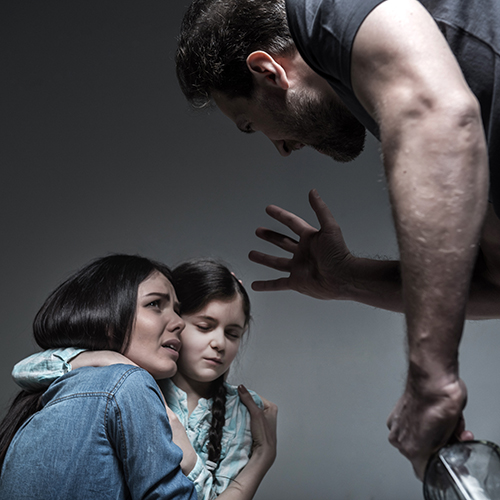18 March 2021

Inconsistent tenancy laws across Australia are making it difficult for women and children experiencing domestic violence to stay, to leave and to find new housing, according to a new report authored by the University of South Australia.
An estimated 41 per cent of people accessing homelessness services in Australia are victims of family domestic violence (FDV), the report finds, and ensuring they have a safe roof over their heads is problematic.
Only NSW and Western Australia have procedures in place that allow FDV victims and survivors to break a tenancy at short notice without involving the police or court system.
The report, commissioned by the Federal Government, identifies ongoing issues that FDV victims experience with current tenancy laws and recommends a national approach to ensure that women and children in these situations are better protected.
Lead author Professor Eileen Webb says that while changes to the Residential Tenancy Act (RTA) allow FDV victims to more easily break a lease without penalties, most states still require tenants to go through a court or tribunal.
“This can deter domestic violence victims from seeking relief because they are reluctant to engage with the judicial system and face the perpetrator in court proceedings,” UniSA’s Professor of Law and Ageing says.
Western Australia and NSW have introduced a procedure where a landlord can be served with a termination notice that is supported by a certificate or declaration by a ‘competent person’, who can verify the tenant is experiencing domestic violence in the house.
“Most states release FDV tenants from outstanding rental payments, repairs and returns of a security deposit, but in some jurisdictions the processes are complex and lengthy. More services should be made available online, including restraining orders,” Prof Webb says.
The lack of housing stock in general, and safe and decent accommodation at short notice for women and children experiencing family domestic violence, remains a key challenge, the report finds.
According to the Australian Institute of Health and Welfare (AIHW), 2.2 million Australians (one in six women) have experienced physical and/or sexual violence from a partner. The impacts to health, jobs and housing costs the economy an estimated $26 billion each year.
The AIHW estimates that family domestic violence results in more than 100,000 women and children seeking homelessness services each year.
“Women in violent relationships are more likely to cycle in and out of homelessness, often living in a car or on the streets. It’s a perilous journey finding safe, alternative accommodation and so many invariably return to the perpetrator. Those who try to leave can be even more at risk, including being murdered,” Prof Webb says.
The report also identified that survivors of domestic violence often have trouble obtaining a new lease because landlords discriminate against them, and because of the difficulties of renting with a pet.
“One in three women experiencing domestic violence don’t leave because they have a pet. It is hard enough to find accommodation for themselves and their children and it’s almost impossible to find a refuge which will take a pet. Women are staying in many cases, even when they have an opportunity to go, because they are frightened of what will happen to their pet,” Prof Webb says.
A video with Prof Eileen Webb can be viewed at: https://youtu.be/PAPd9LjgGmg
Notes for Editors
The report can be accessed at: https://unisa.edu.au/globalassets/resources/research/impact-of-tenancy-laws-on-women-and-children-escaping-violence.pdf
UniSA Media contact: Candy Gibson T: +61 8 8302 0961 M: +61 434 605 142
E: candy.gibson@unisa.edu.au;
Researcher: Professor Eileen Webb T: +61 8 8302 7027 M: +61 401 326 023
E: eileen.webb@unisa.edu.au



